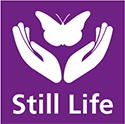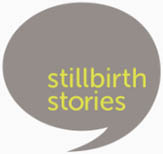
Get involved
We welcome and encourage members of the public to get involved with the activities of the Centre.
Participate in a clinical research project
The Centre runs a number of clinical studies looking into different aspects of maternal and fetal health that are recruiting participants.
If you’re interested in taking part in one of these projects, you can find a list of current studies and contact details on the Saint Mary’s Hospital website.
Public engagement projects
As a centre, we are committed to running an active programme of engagement projects that enable people to find out more about and become involved in our research, without participating in research trials.
We work in close partnership with Vocal, a specialist patient and public involvement and engagement unit at Manchester NHS Foundation Trust, to deliver these projects and events.
We are also committed to raising public awareness of pregnancy complications. Our projects cover a range of topics and methods.
Become a citizen scientist
Placenta Profiles operates through Zooniverse, which is an online platform where members of the public can volunteer to help with real research.
Learn more on the Zooniverse website.
Still Life – exploring pregnancy loss using creative methods

Starting as a pilot scheme in 2018, the Still Life project worked directly with women who had experienced stillbirth with the aims of:
- reducing taboos around discussing stillbirth and neonatal death;
- raising awareness of the impacts of stillbirth;
- encouraging people to have their say on which areas of stillbirth research are important to them.
Women were invited to take part in a series of creative workshops developed by an experienced artist. Each workshop used a different simple art activity (painting, collage, clay sculpting) to focus on a specific theme. The workshops provided an opportunity for relaxed guided discussions about stillbirth and stillbirth research.
A booklet was created by the women who took part in the pilot project to showcase the artwork they created and to help raise awareness of stillbirth and the importance of the research taking place to prevent it.
In January 2019, the Still Life project began working with women from Manchester’s Jewish community. This larger scale project also involved a series of creative workshops, allowing those who took part to:
- explore their own experiences of pregnancy loss in a safe, supportive space;
- find out more about pregnancy research happening in the Maternal and Fetal Health Research Centre;
- help improve future pregnancy research by discussing what was important to them and their community.
Workshops were led by Katharine Cresswell, a Patient and Public Involvement Project Manager from Vocal, and Jewish artist Chava Erlanger.
Support was provided by Alex Silverstone from Jewish Maternity Liaison Services, and midwives and researchers from the Centre.
Stillbirth Stories
 Stillbirth Stories was a pilot project to create an online, audio archive documenting the experience of stillbirth from the perspectives of bereaved parents, midwives and obstetricians. These personal and professional recordings, collected on the Stillbirth Stories website, are a unique resource for those directly affected by stillbirth. We believe the opportunity to listen and share in parents’ stories, told in their own words, engages others with this little-talked-about subject in a way that statistics and facts cannot. The audio archive is available at Stillbirth Stories.
Stillbirth Stories was a pilot project to create an online, audio archive documenting the experience of stillbirth from the perspectives of bereaved parents, midwives and obstetricians. These personal and professional recordings, collected on the Stillbirth Stories website, are a unique resource for those directly affected by stillbirth. We believe the opportunity to listen and share in parents’ stories, told in their own words, engages others with this little-talked-about subject in a way that statistics and facts cannot. The audio archive is available at Stillbirth Stories.
The audio archive was established by Nicola Gibson and Emma Beck both of whom had a wealth of experience of broadcasting and production of audio material and both had experienced the death of a baby either during pregnancy or shortly after birth. Prof. Alex Heazell acted as advisor to the project and conducted an evaluation of the impact of the audio archive.
Stillbirth Stories was supported by a Wellcome Trust People’s Award which is a scheme that supports projects that encourage the public to explore biomedical science, its impact on society and culture, its historical roots or the ethical questions that it raises.
Still Born Project
The Still Born Project is an art and poetry project initiated by artist Adinda van ’t Klooster in 2017 supported by Prof Alex Heazell from the Maternal and Fetal Health Research Centre. Launched in 2020 the participatory artwork Each Egg a World, is an online piece that aims is to raise societal awareness of stillbirth and pregnancy loss and give people who have experienced a stillbirth a voice with which to talk about it to the outside world. This project aims to reach bereaved parents worldwide and reduce some of the social isolation and stigma experienced.
The online artwork contains 44,061 dots that together create patterns of human female egg cells inside a larger egg shape. Each dot represents one stillbirth and all that that entails in each case. It is hoped that the artwork will help to break the taboo on stillbirth and make people feel slightly better equipped with understanding when they come across a stillbirth in their own lives.
This artwork hopes to create an inclusive picture of the impact that a stillbirth can have on people’s lives. It is common complaint of people who have experienced a stillbirth that the magnitude of their loss is ill understood by their wider community and that although they would like to talk about it, they feel pressure to stay quiet because it is a difficult topic.
The Still Born project has been made possible through funding from the Arts Council England (in 2017 and 2020), crowdfunding and from the Wellcome Trust through a Wellcome Institutional Strategic Support Fund award administered by the University of Manchester and from GX project with a grant funded by the ERDF.
Have your say in our research
Members of the public have the opportunity to tell us their views on the research we do that is in an area of personal significance to them.
Maternal and Fetal Health Research Advisory Group
The Maternal and Fetal Health Research Advisory Group is for anyone who has ever experienced any of the following, whether you have gone through this yourself or as a partner:
- IVF
- pregnancy
- pregnancy complication
- miscarriage
- stillbirth
- neonatal death
As a member of this group, you will be invited to work alongside researchers by taking part in activities such as surveys, focus groups (online and face to face) and reviewing documents. You will have a direct impact on how research in the Centre is being done.
You don’t need any experience of research. We encourage and welcome people from all backgrounds to join, including people of all genders, ethnicities and people who identify as LGBTQ+.
We need to hear from as many different people as possible to ensure that research is being done that benefits everyone. For more information visit the group’s webpage on the Vocal website. To join the group please contact mfhrc@manchester.ac.uk.
IVF Research Advisory Group
More and more people have IVF (in vitro fertilisation) in the UK each year, as opposite-sex couples, same-sex couples or a single person.
The process can be long and emotional, and the care people receive can make a big difference to their overall experience.
Currently, people who are pregnant through IVF usually receive the same antenatal care as everyone else. For some people this works well but, for others, this can be difficult.
We want to develop research that will improve the experiences of IVF for everyone. Our approach is to work with people and partners from a wide range of backgrounds who have experienced a pregnancy through IVF (including Intracytoplasmic sperm injection- ICSI).
We provide a secure and supportive environment for members to get involved in research in ways that best suit them.
For more information visit the group’s webpage on the Vocal website. To join the group please contact mfhrc@manchester.ac.uk.
Volunteer for lab work experience
Our researchers occasionally take on volunteers to work in their labs.
You can contact individual researchers to find out if they are taking on new volunteers. See a list of key researchers and links to their contact details in the Research Explorer.
